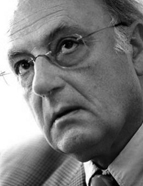

Throughout the 1960s, he worked on figures such as José Estêvão, publishing a study titled Obra Política de José Estêvão [The Political Work of José Estêvão] in 1962. Three years later, he released História da Imprensa Periódica Portuguesa [History of the Portuguese Periodical Press], while also maintaining an interest in the reception of written works, as demonstrated by his study A Novela e o Leitor Português: Estudo de Sociologia da Leitura [The Novel and the Portuguese Reader: A Study in the Sociology of Reading] (1973). Notably, he collaborated with Maria Armanda Falcão in translating several works, including O Idiota [The Idiot], by Dostoevsky (Portugália, 1963), Os Cavaleiros [The Knights], by Ianovski (Portugália, 1966), and A Viela de Moscovo [The Alley in Moscow], by Ilya Ehrenbourg (Celidis, n.d.). During the 1972/73 academic year, he participated in teaching the subjects Economy IV and V at the Instituto Superior de Economia , focusing on topics related to the Economic History of Portugal (18th-20th centuries).
From October 1974, he taught Contemporary History in the Department of History at the Faculty of Arts of the University of Lisbon and played an active role in political life, particularly as a leading member of the MDP/CDE. He served as member of the Constituent Assembly (1975) and the Assembly of the Republic (1980-1987). Throughout his life, he maintained a strong political and civic presence alongside his academic career. He continued his connection to journalism, both as a columnist and as an educator. From 1974 to 1982, he taught History of Journalism in the Higher Journalism Course at the Instituto Superior de Meios de Comunicação Social .
In 1993, he earned a doctorate under the supervision of Jorge Borges de Macedo, with a thesis on Movimentos Populares Agrários em Portugal (1751-1825) [Popular Agrarian Movements in Portugal (1751-1825)]. Back in 1972, he had been enrolled at the Sorbonne to pursue a doctorate in History under the guidance of Albert Soboul, focusing on these topics. However, various setbacks prevented him from completing this goal at the time. Inspired by figures such as Ernest Labrousse, Georges Lefebvre, Albert Soboul, and Albert Silbert, he conducted ongoing research into social topics, offering an innovative and exhaustive analysis of agrarian movements. Throughout his university career, which culminated in his retirement as Full Professor in the Department of History at the Faculty of Arts of the University of Lisbon, he was a visiting professor at several foreign universities, and his work received international recognition.
This work is financed by national funds through FCT - Foundation for Science and Technology, I.P, in the scope of the projects UIDB/04311/2020 and UIDP/04311/2020.
